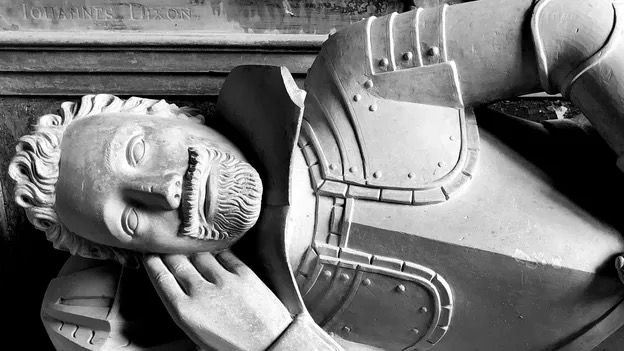Lyle’s Drops Christian Themed Logo after 150-years
- Templar Webmaster

- Feb 20, 2024
- 3 min read
Lyle's Golden Syrup has ditched its world record breaking rotting lion logo after 150 years in favour of a more contemporary design that is more "appealing to the everyday British household" says the company's brand director, James Whiteley.

But is this yet another sign of the decline of Christian values?
The product's green tin and golden lion packaging was first launched in 1881 and holds the Guinness World Record for the world’s oldest unchanged brand packaging, having remained essentially identical since 1883.
The original design was the idea of the product’s founder, Scottish businessman Abraham Lyle, who decided to include a Christian analogy on the tins.
But that logo has now been replaced by a friendlier looking lion and a single bee, with the quote having been removed completely.
The quote and logo refers to The Book of Judges, which details Samson killing a lion with his bare hands before returning to the carcass a few days later to find a swarm of bees had created a hive in its body.

In the story, Samson then took honey from the hive, and fed it to his parents without telling them where he got the honey from.
He later asks guests at his wedding to solve the riddle: “Out of the eater, something to eat; out of the strong, something sweet.”
A version of the riddle, “Out of the strong came forth sweetness”, was chosen for the logo of Lyle’s Golden Syrup, and has remained on the tins ever since.
Lyle’s said the branding has been “revitalised for the modern UK family” in a move to “refresh the brand’s legacy to appeal to a 21st century audience”.
An audience, it appears, that no longer holds the core Christian values that Abraham Lyle once held.
According to the 2021 census England and Wales are no longer majority Christian nations with a fall of 13% - from 59% in 2011 to just 46% - in those professing a Christian faith. The 2021 census also highlights that a staggering 37% of the population have no religion at all.
Many are quick to blame immigration for the decline. But Dr James Williams, Senior Lecturer in Science Education at the University of Sussex, says that this is likely not the reason at all stating the increase in those professing no religion is more likely the cause.
Williams said: "Immigration has a part to play, but I think it's very much over exaggerated."
For example; when looking at immigration from west African countries such as Nigeria and Ghana, many of those people are religious Christians which "goes against that idea that immigration is pushing religion down,” Williams suggests.
Instead, Williams argues that the answer is found in the biggest real-figure increase in religious identification: no religion.

“Is it surprising when what we're trying to do to our nation is to educate it to be critical thinkers, to not take things at face value, but actually investigate and to talk about whether or not you know information is reliable,” Williams says.
As people grow increasingly well educated, Williams suggests there will similarly be a loss of faith among the population.
But that doesn’t mean the Church doesn’t have a place in modern life.
“I think the job of the churches, the mosques, the synagogues, and everywhere else, is to be welcoming places where children can go and explore those faiths,” Williams says.
“What they need to do is to concentrate on those aspects that they're very, very good on,” he continues. “That’s care of the community, which is looking after their parishioners and giving people a place to come to share their hopes, their dreams, and their fears, among other things.”
And it is here that we, as Knights Templar, have a role to play also. The need for spiritual community is still very much relevant, even if it's not currently manifesting it self as purely Christian beliefs, and so as Knights Templar we should be holding out the hand of fellowship to all those seeking comfort in times of distress or sadness irrespective of their current personal beliefs.




Comments